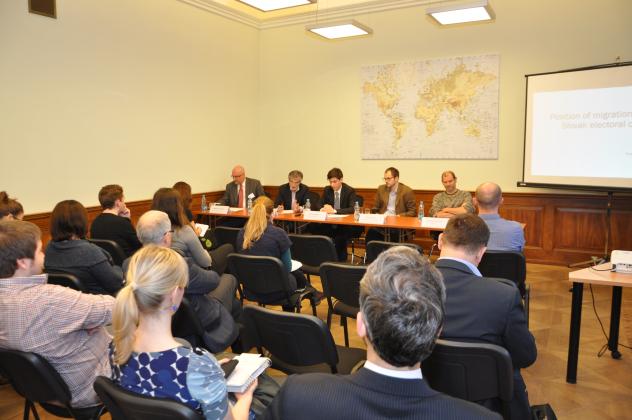
Parliamentary Elections in Slovakia: Pre-Election Promises and Post-Election Expectations
On March 5, 2016, Slovak voters will go to the polls to elect their next Parliament. The International Foundation for Electoral Systems (IFES) and the Central and Eastern European Law Initiative (CEELI) held a lively discussion on February 24 to examine the impact that the elections will have on Slovakia’s future, both domestically and regionally. With Slovakia taking over the European Union (EU) presidency in July 2016, the results of the elections will have an impact on the perceptions of Central Europe’s role in the EU.
The panelists briefly examined the history of Slovak elections, including shifts in electoral patterns from single-issue focused polls and referenda to more diverse platforms being voted on. The Slovak Parliament only recently accepted changes to the electoral system and adopted new electoral rules, mainly regarding political and campaign financing.
When discussion turned to voter turnout on Election Day, panelists argued that, while a large majority of voters said they will vote and call on others to vote, a number of issues (such as opaque financing of political parties, a 5 percent threshold to enter Parliament, and a new law for candidacies) could reduce turnout as voters protest these issues.
The upcoming elections in Slovakia are of the utmost importance, not only for the country but for the region as a whole, and will define its relationship with and within the EU.




